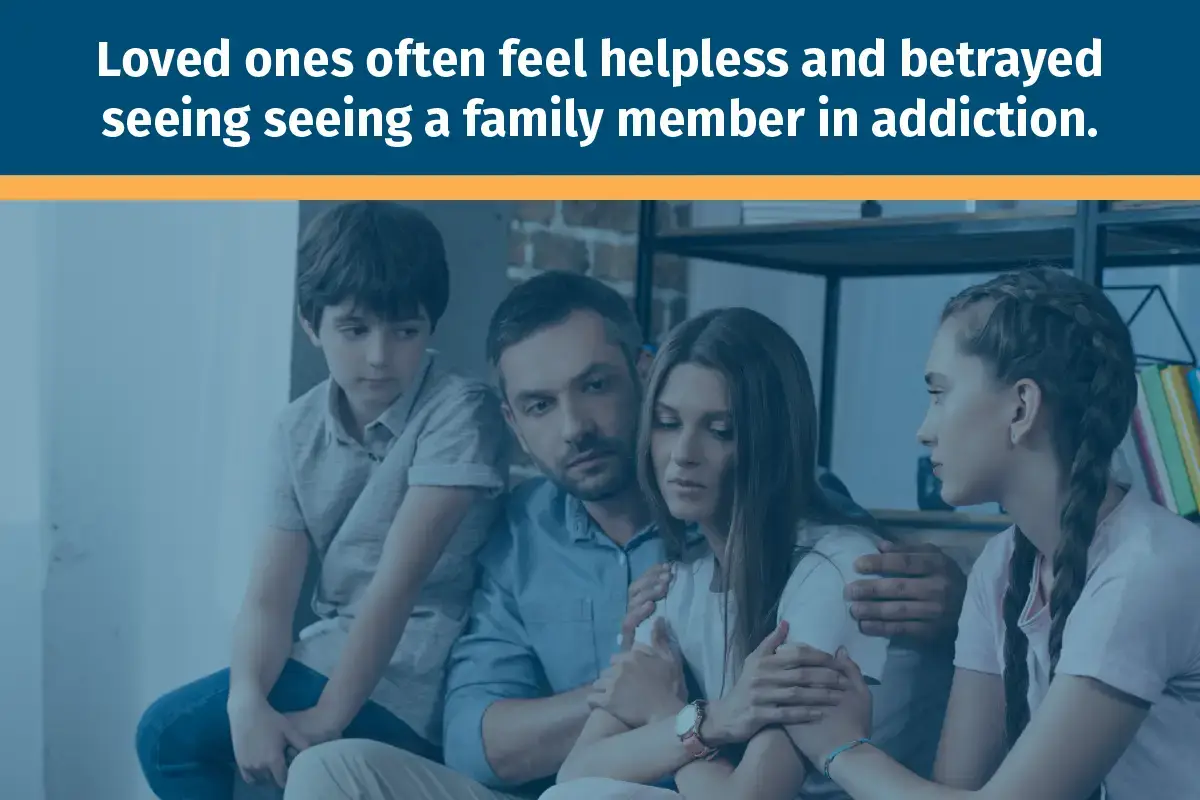Understanding The Social Impact Of Drug Addiction
More Resources
Call us today to get the support and guidance you deserve.
The Social Impact of Drug Addiction: Understanding Its Ripple Effects on Individuals and Communities
In today’s interconnected world, drug addiction continues to cast a long shadow over individuals, families, and communities alike. Beyond its immediate health implications, the social impact of drug addiction resonates deeply across societal structures. The ripple effects are profound, from strained relationships and financial instability to broader community issues like crime and healthcare burdens.
Understanding the social dimensions of addiction is important in fostering empathy, reducing stigma, and developing effective policies to mitigate its widespread repercussions in society.
Key Takeaways
Drug addiction not only affects individuals’ health but also has a far-reaching social impact. Here’s what you need to know:
- Drug addiction strains social structures, leading to increased crime rates and burdens on healthcare systems.
- Families and communities suffer from emotional and financial stress due to the addiction-related behaviors of individuals.
- Addiction perpetuates cycles of poverty and homelessness, exacerbating social inequality and marginalization.
Drug Addiction: An Overview
Drug addiction, also known as substance use disorder, is a chronic disease characterized by compulsive drug seeking and use despite harmful consequences. It involves a physical and psychological dependence on a substance, leading to significant alterations in brain function and behavior.
The addiction cycle often begins with voluntary drug use, but over time, a person’s ability to choose not to take the drug becomes compromised. This is due to changes in the brain that affect self-control and decision-making while also inducing intense cravings. The primary indicators of addiction include tolerance, withdrawal symptoms, and the inability to stop using the drug despite knowing its adverse effects.
Overview Of Social Impact
Drug addiction significantly impacts society, affecting not only young people but also families, communities, and economic systems. It contributes to increased healthcare costs, crime rates, and lost productivity. Families often face emotional and financial strain, while communities may experience higher rates of violence and social instability. The healthcare system bears a heavy burden due to the need for addiction treatment services, emergency care, and long-term health complications associated with substance abuse.
Most insurance plans cover treatment here, making the cost to you as low as possible - sometimes even zero.





Community And Neighborhoods
Drug addiction contributes to the deterioration of community and neighborhood environments. Areas plagued by drug abuse often experience increased crime rates and diminished public safety. People with an addiction may engage in criminal activities such as theft, burglary, and drug dealing to support their habits, fostering an atmosphere of fear and distrust among residents.
Communities grappling with drug addiction typically witness a surge in criminal behavior. People dependent on drugs driven by desperation may resort to illegal activities to acquire money for illegal drugs, exacerbating crime rates.
This trend not only endangers public safety but also burdens law enforcement and judicial systems, diverting resources that could otherwise be used for community development and crime prevention.
The public health repercussions of drug addiction are severe and multifaceted. Substance abuse contributes to the spread of infectious diseases such as HIV/AIDS and hepatitis through shared needles. Additionally, overdose deaths and health complications associated with prolonged abuse of drugs strain healthcare resources, further challenging public health infrastructure.
Addiction incurs significant financial burdens on families. The costs associated with purchasing drugs often lead to financial instability, depleting savings, and straining budgets. This financial strain may result in overdue bills, foreclosure, and bankruptcy, exacerbating the family’s economic hardship.
The emotional and psychological toll of drug addiction on families is profound. Loved ones often experience feelings of betrayal, anger, and helplessness as they witness the deterioration of their family member’s health and well-being. Children, in particular, may suffer from neglect, instability, and emotional trauma, which can have long-term consequences on their development and mental health.
People with drug and alcohol abuse often struggle to keep jobs. Their performance suffers, leading to frequent absences and lower productivity. Employers face higher costs due to turnover and the need to train new employees. This instability can make it hard for businesses to succeed and can increase unemployment rates.
The financial burden of alcohol addiction on society is enormous. Governments spend billions on healthcare, law enforcement, and social services related to drug abuse. This money could be used for education, infrastructure, or other important needs. Additionally, families affected by addiction often require extra support, which can strain public resources.

Education
Drug addiction also affects education systems. Both high school students and schools suffer when drug abuse is present.
Impact On Students: Students who struggle with chronic substance use face many challenges. They often have trouble focusing, leading to poor grades and higher dropout rates. Addiction can also lead to behavioral issues, making it difficult for these students to succeed academically and socially.
Impact On Schools: to a report, schools must address the problems caused by alcohol and drug misuse. They may need to provide counseling and support services, which can be costly. Teachers and staff spend extra time dealing with these issues, which takes away from teaching and learning. Schools may sometimes face safety concerns, affecting the entire school environment.
Public Safety
Drug addiction poses significant risks to public safety. It contributes to traffic accidents, violence, and domestic abuse.
Traffic Accidents: People who drive under the influence of illicit drugs endanger everyone on the road. Drug-impaired driving reduces reaction times and impairs judgment, leading to accidents. These accidents can cause injuries or fatalities, affecting not just the person with an addiction but innocent people as well.
Violence And Domestic Abuse: Alcohol misuse often leads to violent behavior. People with substance use disorder may become aggressive or engage in criminal activities to obtain drugs. This violence can spill into homes, resulting in domestic abuse. Families living with addiction face constant fear and instability, which can have long-term emotional and psychological effects.
Commit To Change With The Recovery Team
Navigating the journey to recovery can bring up many questions. Below are some of the most commonly asked questions about our services. If you need more information or have additional questions, we are only a phone call away.

Drug abuse among youth leads to significant social issues, including academic decline, increased dropout rates, and strained family relationships. It can result in criminal behavior and legal issues, damaging prospects.
Socially, it often leads to isolation, mood swings, poor peer relationships, and involvement in dangerous environments. Drug abuse also exacerbates mental illness, contributing to a cycle of dependency and dysfunction in modern society. The broader community faces increased healthcare and law enforcement costs and the loss of productive, contributing members.
Withdrawal can be tough, but medical treatment helps manage symptoms and keep you safe. It's nothing like doing it on your own.
Common social consequences of illicit drug use include strained family relationships, violent incidents, loss of employment or work, and financial instability. It often leads to social isolation as individuals withdraw from their communities and supportive networks.
Increased criminal activity and legal issues are prevalent, along with higher rates of homelessness. Drug addiction also contributes to mental health problems, exacerbating social dysfunction. The broader community faces increased healthcare costs and reduced productivity, impacting overall social cohesion and public safety.
Available 24/7
The Next Step Is A Simple Phone Call
Give us a 5-minute call for more information about our services. There is no commitment or judgement – we’ve been there before ourselves.
Contact us for more information :
Call Us
(800) 817-1247
Verify Insurance
100% Confidential